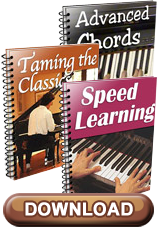
I give you 5 free piano music lessons today. I know this will help you a lot. So read on.
1) Interest:
Assess the interest of your child. Is this something they really like – or is it your dream? The child should show genuine interest in music and a keyboard in order for their learning experience to be a pleasant and successful one. If they are not interested – ask yourself why you even pursued it? Is it because you have an inner desire for it? It’s NEVER too late to begin! Sign yourself up for Piano lessons if that’s the case. I’ve have students of every age – some played when they were kids then quit. As they got older, regretted quitting and vowed to one day pick it up again. Then there are others who always had the desire but not the opportunity and now find themselves retired with plenty of time on their hands. They’ve actually become Piano virtuosos! I give you these lovely examples to give you hope and a nudge – psssst! It’s never too late! The student must be genuinely interested.
2) Instrument:
It’s fine to begin Piano lessons on an electronic keyboard. As time goes on, the student will know in which direction they’d like to take the Piano lessons. If it’s just for personal enjoyment, it’s fine to stay with a keyboard. If it’s for classical Piano training – then the student should be switched over to an acoustic Piano. In my experience as a Piano teacher, I’ve realized that a Spinet Piano (the ones that have a low back) unless it is given as a gift, should not be purchased. It would be preferable to purchase an “Upright” which is a Baby Grand Piano, but instead of the strings being vertical they’re horizontal. The reason being, that the action on the keys is much better technically for the student’s hand, and it sound substantially better to the ear.
3) Teacher:
Ask around and get feedback from others about their teachers. Find out the teacher’s background. Where did they get the education from, how long have they been teaching, where do they teach from, what are the surroundings like? Ask current students how patient the teacher is and how do they feel during the lesson. It’s not like you are getting a free piano music lesson. You are paying for it. So you should be cautious about it. So you would better You should get a pretty good idea about the teacher by how current students are progressing. Does the teacher’s personality blend with your child’s. Remember, this is a choice! In school the children have to adapt to the teacher that has been assigned to them, and that’s a good thing. They learn to get along with different types of personalities, but Piano is an extra-curricular activity and should be a pleasant one that they look forward to.
4) Schedule:
Children can be easily overwhelmed by too much in their schedule. As adults – we’ve experienced overload for ourselves and it’s SO counterproductive! It’s highly advisable to limit activities in order for the kids not to be pulled in too many directions.
Once activities have been chosen, I’ve found with my own kids and students that by writing down a daily schedule, everything gets done and there are no excuses for forgetting to practice.
5) Dedication:
Once a schedule is in place, practicing piano will become part of daily routine. After a while, the student won’t be so “worried” about time, but will want to achieve goals set by the teacher. The student will need dedication in order for the craft to go from mechanical to musical. Encourage them to listen to a wide range of styles and genre’s in order for them to develop their own taste for music. At an early stage, dedication can be ingrained in a student by participating in Recitals, Talent Shows and Worship Services. It takes diligence and dedication – also sacrifices to make piano a beautiful craft.



0 comments:
Post a Comment